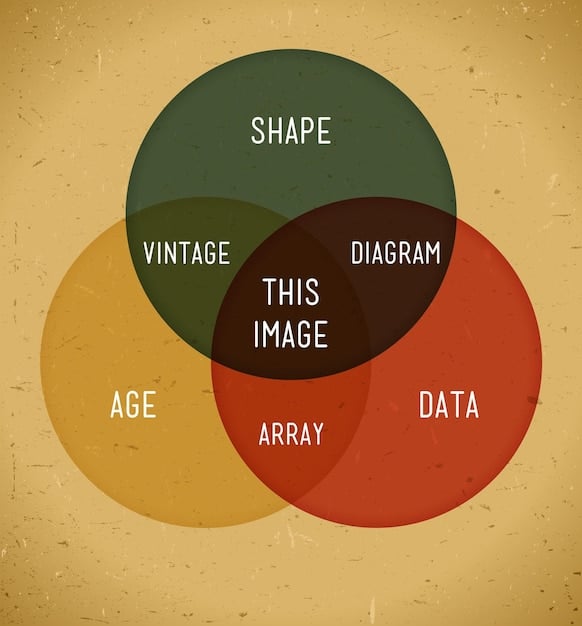Formalist vs. Marxist Criticism: Key Differences in American Literature

Formalist literary criticism focuses on a text’s intrinsic elements, while Marxist criticism examines literature through the lens of social class, power structures, and economic inequalities, revealing their differing approaches within contemporary American literature.
What are the Key Differences Between Formalist and Marxist Literary Criticism Approaches in Contemporary American Literature? These critical lenses offer contrasting ways to interpret texts, with formalism emphasizing the text’s internal structure and Marxism focusing on its socio-economic context. Understanding these differences enriches our appreciation of literature.
Understanding Formalist Criticism in American Literature
Formalist criticism, also known as New Criticism, is a literary approach that emphasizes close reading of the text itself. It disregards external factors such as the author’s biography, historical context, or social influences, focusing instead on the internal elements that contribute to the text’s meaning.
Formalists analyze aspects like language, structure, tone, and imagery to understand how these elements work together to create a unified whole. This approach sees the literary work as an independent entity, where meaning is derived from the text’s internal relationships and patterns.
Key Characteristics of Formalist Criticism
Formalist criticism operates on several core principles that guide its analytical process.
- Emphasis on the text’s intrinsic elements: Formalists prioritize analyzing language, style, structure, and tone.
- Rejection of external influences: Biographical, historical, and cultural contexts are deemed irrelevant.
- Focus on the work as a self-contained entity: The literary work is viewed as a unified whole with its own internal logic.

Formalist critics examine the literary work as though it’s a carefully assembled machine, where each part plays a critical role in the overall function. This approach seeks to uncover the underlying unity and coherence of the text, independent of any external considerations.
Exploring Marxist Criticism in American Literature
Marxist criticism examines literature through the lens of social class, power dynamics, and economic inequalities. Rooted in the theories of Karl Marx, this approach views literature as a product of its socio-economic context, reflecting and reinforcing the dominant ideologies of a society.
It analyzes how literary works portray class struggles, social injustices, and the exploitation of the working class. Marxist critics also explore how literature can challenge or uphold existing power structures and contribute to social change.
Core Tenets of Marxist Literary Analysis
Marxist criticism is guided by specific principles that underpin its analytical framework.
- Emphasis on socio-economic context: Literature is seen as a reflection of material conditions and class relations.
- Analysis of power dynamics: Marxist critics examine how power is distributed and exercised in society.
- Focus on class struggle: Literature is analyzed in terms of its portrayal of class conflict and social inequality.
Marxist critics are concerned with understanding how literary works reflect the economic, social, and political forces at play in a given society. They aim to uncover the ways in which literature can perpetuate or challenge dominant ideologies.
Contrasting Perspectives: Text vs. Context
The fundamental difference between Formalist and Marxist criticism lies in their approach to the text. Formalism focuses on the text itself, while Marxism emphasizes its socio-economic context. This leads to divergent interpretations and analytical strategies.
Formalists believe that meaning is inherent in the text, determined by its internal elements. Marxists argue that meaning is socially constructed, shaped by historical and economic forces. Understanding this distinction is crucial for appreciating the contrasting perspectives of these critical approaches.
Key Contrasts in Analytical Focus
The analytical focus of Formalist and Marxist criticism differs significantly.
- Formalism: Focuses on textual elements like language, style, and structure.
- Marxism: Emphasizes socio-economic factors, class relations, and power dynamics.
- Formalism: Excludes external influences like author’s biography or historical context.

These contrasting focuses result in vastly different readings of the same literary work. Formalists may analyze how a novel’s narrative structure enhances its themes, while Marxists may explore how the novel reflects class struggles and social injustices.
Authorial Intent: Importance vs. Irrelevance
Another key difference between Formalist and Marxist criticism is their stance on authorial intent. Formalists generally disregard the author’s intentions, arguing that the text should be analyzed independently of the author’s life and beliefs.
Marxists, on the other hand, may consider the author’s social class, political views, and historical context to understand how these factors influenced the work. However, they don’t necessarily equate authorial intent with the text’s meaning, recognizing that texts can have unintended consequences and meanings beyond the author’s control.
Views on Authorial Influence
The role of the author is viewed differently in each critical approach.
- Formalism: Authorial intent is considered irrelevant.
- Marxism: Author’s social context and political views may be considered, but are not definitive.
- Formalism: The text speaks for itself, independent of the author.
Formalists argue that focusing on the author’s intentions can distract from the text’s intrinsic qualities. Marxists see the author as shaped by social and economic forces, but recognize that texts can have multiple interpretations.
Social and Political Implications
Marxist criticism is inherently concerned with social and political implications, examining how literature reflects and reinforces power structures. It aims to expose social injustices and promote social change. Formalism, on the other hand, tends to avoid explicit social or political commentary, focusing on the aesthetic qualities of the text.
Marxist critics may analyze how a novel challenges or upholds dominant ideologies, while Formalists may focus on how the novel’s use of language creates a particular aesthetic effect. This difference reflects their divergent goals and priorities.
Impact on Interpretation and Analysis
The political and social inclinations of these approaches result in distinct interpretations.
- Marxism: Analyzes literature to reveal social inequalities and power imbalances.
- Formalism: Analyzes literary texts to reveal aesthetic qualities and unity of form.
- Marxism: Highlights the role of literature in shaping social consciousness.
Marxist critics seek to empower marginalized voices and challenge oppressive systems, while Formalists prioritize the artistic merit and formal coherence of literary works.
Contemporary Applications and Relevance
Both Formalist and Marxist criticism continue to be relevant approaches in contemporary literary studies. Formalism provides a valuable framework for close reading and textual analysis, while Marxism offers insights into the social and political dimensions of literature.
These approaches are often used in conjunction with other critical theories, such as feminism, post-structuralism, and post-colonialism, to provide more nuanced and comprehensive interpretations of literary works. Understanding the strengths and limitations of each approach is essential for developing critical thinking skills.
Continued Use in Literary Analysis
The applicability of Formalist and Marxist approaches ensures their ongoing use:
- Formalism: Provides refined tools for interpreting internal text features.
- Marxism: Helps to decode social and political messages embedded in a text.
- Both: Remain essential components of sophisticated literary analyses.
| Key Aspect | Brief Description |
|---|---|
| 🔎 Textual Focus | Formalism analyzes language and structure; Marxism examines socio-economic context. |
| 🧑 Author’s Role | Formalism disregards authorial intent; Marxism considers author’s social context. |
| ⚖️ Social Agenda | Marxism emphasizes social and political implications; Formalism focuses on aesthetic qualities. |
| 💡 Purpose | Formalism seeks to understand unity of form; Marxism aims to expose social injustices. |
Frequently Asked Questions
▼
Formalist criticism primarily focuses on the intrinsic elements of a literary work, such as language, structure, and style, disregarding external factors like authorial intent or historical context.
▼
Marxist criticism views literature as a product of its socio-economic context, reflecting and reinforcing the dominant ideologies of a society, particularly concerning class struggles and power dynamics.
▼
No, authorial intent is generally disregarded in Formalist criticism. The text is analyzed independently of the author’s life, beliefs, or intentions, focusing solely on the text’s internal elements.
▼
Marxist criticism is deeply concerned with social and political implications, examining how literature reflects and reinforces power structures, exposes social injustices, and promotes social change through its analysis.
▼
Both Formalist and Marxist criticisms are relevant today. Formalism provides a framework for close reading, while Marxism offers insights into the social and political dimensions of literature, often used in conjunction with other critical theories.
Conclusion
In examining the core differences between Formalist and Marxist literary criticism, it’s clear that each approach offers a unique lens through which to understand and interpret literature. While Formalism prioritizes the text’s internal structure and aesthetic qualities, Marxism emphasizes the socio-economic context and political implications of literary works. Understanding these distinctions allows for a more comprehensive and nuanced appreciation of contemporary American literature.





